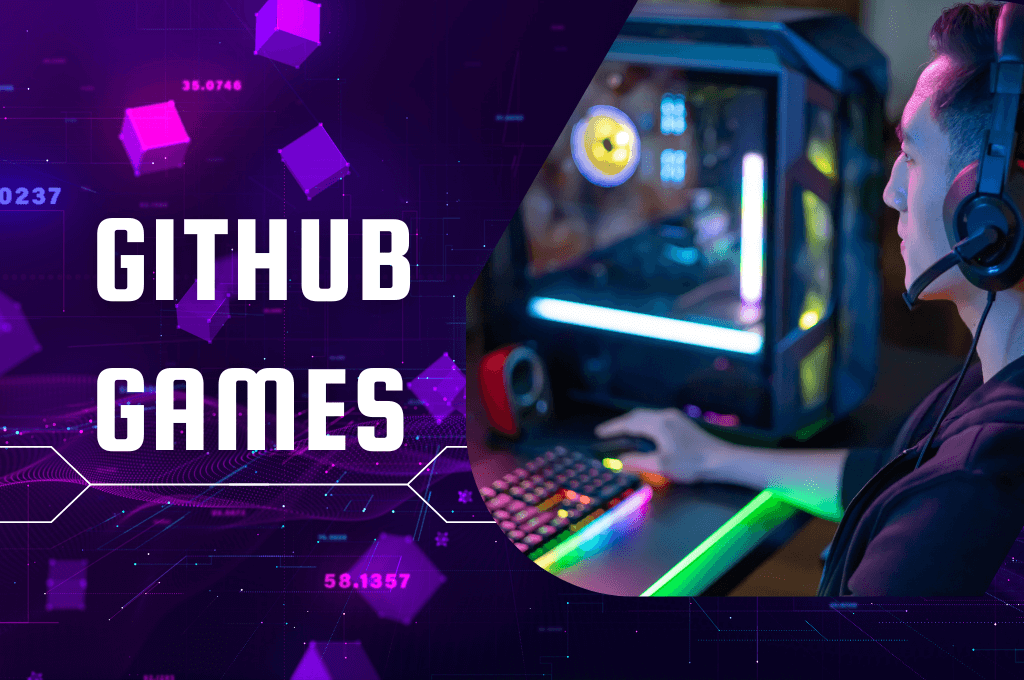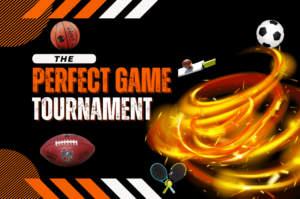
It was a rainy afternoon when I stumbled upon a GitHub repository filled with interactive games made by fellow developers. I had always thought of GitHub as a place solely for code storage, but here I was, about to embark on an adventure delving into coding creativity merged with gaming. Seeing various coding styles transformed into playable games was a game-changer for me — and I want to share that journey with you!
The Rise of GitHub Games
The world of coding is evolving. Today, games are not just for fun; they serve as a new medium for coding education. Can you imagine learning to code while playing a game? It’s an innovative approach that makes learning engaging and interactive.
Games as a New Medium for Coding Education
Games provide a unique platform for teaching coding concepts. They make complex ideas accessible. For example, you can learn about algorithms while playing a puzzle game. This hands-on approach helps solidify understanding. It’s like learning to ride a bike—you can read about it, but you only master it by doing.
The Collaborative Nature of GitHub and Gaming
GitHub is all about collaboration. It allows developers to share their code and work together on projects. This fits perfectly with gaming. Developers can create games, share them, and improve them together. The open-source model of GitHub encourages sharing knowledge and resources. It’s a win-win situation for everyone involved.
Examples of Popular Game Repositories on GitHub
There are many exciting game repositories on GitHub. Some popular examples include:
- 2048: A simple yet addictive puzzle game that challenges your strategic thinking.
- Tetris: The classic game that has stood the test of time, teaching spatial awareness.
These games are not just entertaining; they also serve as excellent learning tools. As John Doe said, “Gaming not only entertains but also teaches essential coding skills.” This quote encapsulates the essence of what GitHub games represent.
By exploring these repositories, developers can learn from real code, experiment, and even contribute their own ideas. The possibilities are endless.
By exploring these repositories, developers can learn from real code, experiment, and even contribute their own ideas. The possibilities are endless.
Learning Through Play: The Educational Potential of GitHub Games

GitHub is all about collaboration. It allows developers to share their code and work together on projects. This fits perfectly with gaming. Developers can create games, share them, and improve them together. The open-source model of GitHub encourages sharing knowledge and resources. It’s a win-win situation for everyone involved.
Using Games to Understand Programming Concepts
Games provide a practical exposure to code. They break down intricate ideas into manageable parts. For instance, when you code a character’s movement in a game, you learn about loops and conditionals. It’s like learning to ride a bike. You don’t just read about it; you do it!
Using Games to Understand Programming Concepts
GitHub hosts numerous projects where you can access code samples. These samples are invaluable. They show you how others solve problems, letting you learn from their strategies. You can even tweak the code and see what happens. It’s a hands-on approach that reinforces learning.
How Collaboration on GitHub Enhances Skills
Collaboration is key in the programming world. GitHub allows us to work together on projects. We can share ideas, give feedback, and learn from each other. This teamwork enhances our skills and builds a sense of community. As Jane Smith wisely said, “If you can play it, you can code it!”
Many educational institutions now recommend coding games. They recognize the potential for engagement and practical skill development. So, why not embrace this trend? Let’s dive into the world of GitHub games and unlock our programming potential!
Building Your Own Game: A Step-by-Step Guide Using GitHub
How Collaboration on GitHub Enhances Skills
When it comes to game development, selecting the right engine is crucial. Think of it as picking the right tools for your craft. Are you aiming for 2D or 3D? Do you prefer a robust engine or something lightweight? Here are some options:
- Unity: Great for both 2D and 3D games. It has a large community and plenty of resources.
- Godot: An open-source engine that’s easy to learn. Perfect for indie developers.
- Phaser: A simple framework for making 2D games in HTML5.
Choosing the right engine can make or break your project. It’s like choosing the right canvas for a painting. So, take your time!
Setting Up Your GitHub Repository
Now that you have your engine, it’s time to set up a GitHub repository. This is where your project will live. Think of it as your digital workspace. Here’s how to get started:
- Create a GitHub account if you don’t have one.
- Click on the “New” button to create a new repository.
- Name your repository and add a description.
- Initialize it with a README file to explain your project.
By setting up your repository, you’re laying the groundwork for your game. It’s essential for version control and collaboration.
Collaborating with Others to Enhance Your Project
Collaboration is key in game development. You don’t have to do this alone! GitHub provides powerful tools for teamwork. Consider these points:
- Use branches to work on features without affecting the main project.
- Utilize issues to track bugs and feature requests.
- Engage with your team through pull requests to review changes.
Remember, “Creating games is more than just programming; it’s about storytelling and engagement.” – Mark Johnson. Working with others can bring new perspectives and ideas to your project.
With these steps, you’re well on your way to developing your own game. Embrace the journey, and don’t hesitate to reach out for help along the way!
The Community Factor: Connecting with Other Game Developers
As game developers, we often find ourselves at a crossroads. How do we create something unique? How do we push our projects further? One answer lies in collaboration. Finding collaborators through GitHub can be a game-changer.
Finding Collaborators through GitHub
GitHub is more than just a code repository. It’s a vibrant community where developers connect. Have you ever thought about how many indie games started as collaborative efforts on this platform? By exploring various projects, we can discover like-minded individuals who share our passion.
- Search for projects that interest you.
- Engage with other developers through comments.
- Join discussions to showcase your skills.
Engaging in Open Source Projects
Open source projects offer a fantastic opportunity to collaborate. They allow us to contribute to existing games or even start new ones together. By participating, we learn from each other. It’s a mutually beneficial relationship!
Communities often host game jams to encourage participation. These events are perfect for testing ideas and meeting new people. Imagine working on a game in just 48 hours with a team you just met! It’s thrilling and can lead to lasting partnerships.
Examples of Successful Collaborations
There are countless success stories of developers who found their partners on GitHub. For instance, a small team created a popular indie game that gained critical acclaim. They started as strangers, but their shared vision brought them together.
As Sarah Connor wisely said, “Community is the backbone of open-source game development.” This quote resonates deeply with many of us in the industry. By networking within the GitHub ecosystem, we unlock endless possibilities.
So, let’s embrace the community. Let’s connect, collaborate, and create something amazing together!
Challenges in the GitHub Game Development Sphere
Game development on GitHub is exciting, but it comes with its own set of challenges. As developers, we need to be aware of these hurdles to navigate them effectively.
Navigating Licensing and Copyright Issues
Licensing can be a minefield. Many developers overlook it, thinking it’s just legal jargon. But understanding licenses is crucial. It can prevent legal issues down the line. Are you aware of the implications of using someone else’s code? You could face serious consequences if you don’t comply with licensing agreements.
Ensuring Code Quality and Maintainability
Code quality is another significant challenge. Poorly written code can lead to bugs and maintenance headaches. How do we ensure our code remains clean and maintainable? Regular code reviews and community contributions are vital. They help improve software quality and foster collaboration.
Dealing with Competition
The pool of projects on GitHub is vast. Standing out can feel daunting. With so many developers vying for attention, how do we make our mark? We must focus on creating unique, high-quality content. Remember, as Aaron Lee said, “The biggest challenge is often not the code, but the collaboration itself.” Collaboration can set your project apart.
In summary, while the GitHub game development sphere is filled with challenges, understanding licensing, maintaining code quality, and navigating competition can lead to success. Let’s embrace these challenges together!
The Future of Gaming on GitHub: Trends to Watch

As we dive into the future of gaming, one thing is clear: change is on the horizon. The gaming landscape is evolving rapidly, especially on platforms like GitHub. Here are some key trends that I believe will shape our gaming experiences.
Increasing Popularity of Multiplayer Games
Multiplayer games are becoming the norm. Why? Because they bring people together. Whether it’s friends or strangers, the thrill of competing or cooperating in real-time is unmatched. Think about it: when was the last time you played a game alone? The social aspect is what draws players in.
The Integration of AI in Game Development
Artificial Intelligence (AI) is not just a buzzword; it’s revolutionizing how games are developed and played. AI can create smarter, more adaptive gameplay experiences. Imagine a game that learns from your play style and adjusts its difficulty accordingly. Sounds exciting, right? This innovation is paving the way for more personalized gaming.
Emergence of New Genres and Unique Concepts
We are witnessing the birth of new gaming genres. Developers are pushing boundaries, experimenting with unique concepts that challenge traditional gameplay. This creativity is essential. It keeps the gaming community engaged and eager for more. Who knows what the next big hit will be?
“The future of gaming will be shaped by innovation and collaboration on platforms like GitHub.” – Lisa White
Looking Ahead
As we explore these trends, we can’t ignore the potential of virtual reality (VR) games. This technology is still largely untapped. What if we could immerse ourselves in a game world like never before? The possibilities are endless.
In summary, the future of gaming on GitHub is bright. With the rise of multiplayer experiences, the integration of AI, and the emergence of new genres, we are in for an exciting ride. Let’s keep our eyes on these trends as they unfold!
Conclusion: Your Next Steps in the Github Gaming Community
As we wrap up our journey through the world of GitHub games, I want to encourage you to take that leap. Join GitHub today and start exploring the vast array of games available. There’s a treasure trove of projects waiting for your unique touch.
Feeling unsure about where to start? Here are some tips:
- Browse existing projects: Take time to explore repositories. Find one that resonates with you.
- Contribute: Whether it’s fixing a bug or adding a feature, every contribution counts. Remember, every effort, big or small, can make a difference.
- Engage with the community: Don’t hesitate to ask questions. The GitHub community is welcoming and eager to help newcomers.
So, why not start your game development journey today? With abundant resources and a supportive community, you have everything you need at your fingertips. As Clara Bell wisely said, “The only limit is your imagination — and GitHub is the gateway to it!” Let your creativity flow and dive in!

